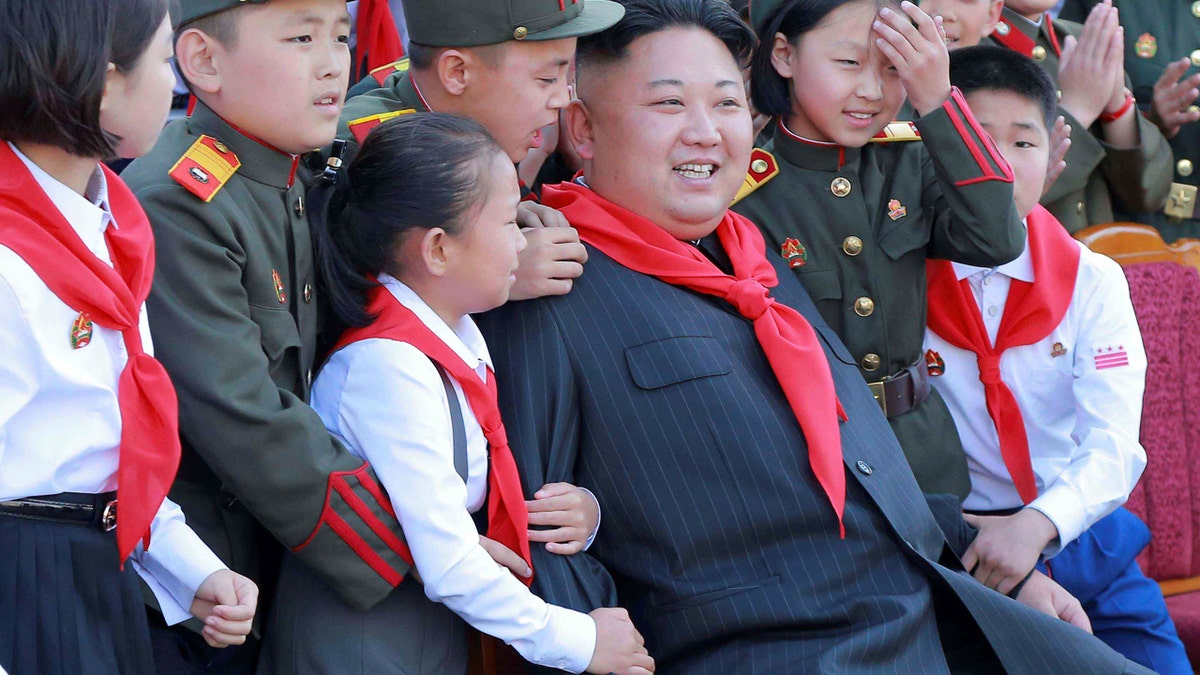
North Korean leader Kim Jong Un poses with participants during the 8th Congress of the Korean Children's Union (Reuters)
Despite international sanctions over its focus on nuclear weapons, North Korea watched its economy grow at its fastest pace in nearly two decades in 2016, driven mainly by the mining and energy sectors, Reuters reported.
North Korea’s gross domestic product rose 3.9 percent in 2016. Some outside factors played a role for poor numbers in 2015, including a drought and low commodity prices, Reuters reported, citing the Bank of Korea.
Pyongyang does not release its official GDP. The Bank of Korea crunched the numbers and said the 3.9 percent rise is Pyongyang’s best year in 17 years.
North Korea may have had an improved year in 2016, but the economy is far from robust. The rogue nation's GDP was 32.0 trillion won, or $28.50 billion. To put it in perspective, South Korea’s GDP was 1,508.3 trillion won in the same year, or $1.34 trillion.
North Korea has spoken out against what it called suffocating sanctions. Pyongyang has been concerned by the advent of President Trump's administration and the possibility of tougher policies than those carried out by his predecessor, Barack Obama.
Following a recent series of high-profile North Korean missile tests, the U.S. earlier this month led an effort at the U.N. to pass a resolution adding more North Korean individuals and entities linked to its nuclear and missile programs to a sanctions blacklist.
The resolution expressed serious concern that North Korea continues to violate previous U.N. resolutions with launches and attempted launches of ballistic missiles, and that its nuclear and missile activities threaten international peace and security. The Security Council has repeatedly demanded that North Korea abandon all nuclear weapons programs and halt all nuclear and missile tests.
The Security Council had already imposed six rounds of sanctions on North Korea.
Although 2016 was a strong year, it is unclear if China’s coal ban would affect the country in the future.
The Associated Press contributed to this report








































